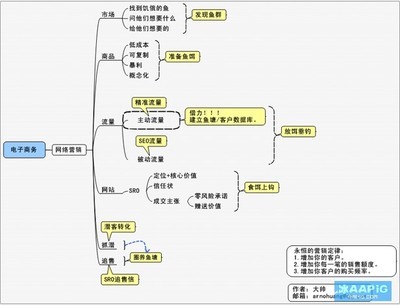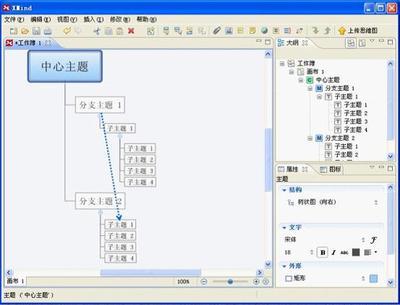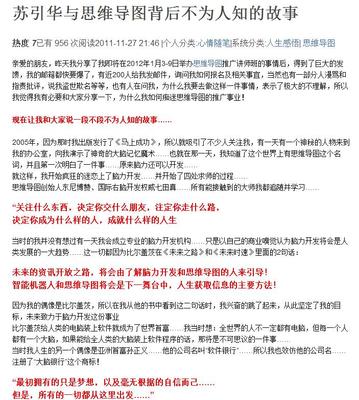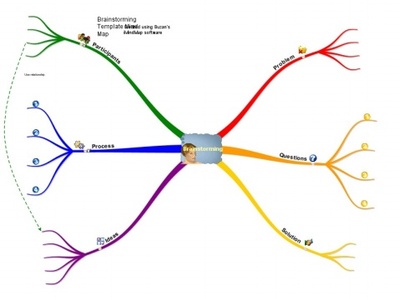七年级下册英语期末考试近了,勤奋的态度和主动积极的精神是一种良好生活的习惯,这种良好的生活习惯可以使我们为考试创造出更多成功的机会。以下是小编为大家整理的仁爱版英语七年级下册期末试卷,希望你们喜欢。
仁爱版英语七年级下册期末试题
(考试时间:100分钟,满分:120分)
第一部分 听力(20分)
Ⅰ. 听句子,选择正确图片。每个句子读一遍。(5分)
Ⅱ. 听句子,选择正确答语。每个句子读一遍。(5分)
( )6. A. Fine, thank you. And you? B. I’m doing my homework.
C. I’m making the card by hand.
( )7. A. Thank you all the same. B. This way, please.
C. I don’t tell you.
( )8. A. It’s hard to say. B. Yes, I like it best.
C. No, I don’t like it.
( )9. A. I can write. B. I can draw a bird. C. Yes, I can.
( )10. A. It’s Wednesday. B. It was Friday. C. It was June 3rd.
Ⅲ. 听对话,选择正确答案。每段对话读两遍。(5分)
( )11. What does Jane often do in her free time?
A. She often watches TV. B. She often dances to music.
C. A and B.
( )12. What’s the boy’s plan for the summer holidays?
A. He wants to visit Germany.
B. He hopes to visit India.
C. He would like to go to Australia.
( )13. What shape is Maria’s present?
A. It’s black and white. B. It’s round.
C. We don’t know.
( )14. Where are they talking?
A. In a restaurant. B. In a store. C. In a library.
( )15. Are there any model planes in the box?
A. Yes, there are.
B. No, there aren’t.
C. Yes, there is only one.
Ⅳ. 听短文,选择正确答案。短文读两遍。(5分)
( )16. Tom went to visit his uncle with _____.
A. his mother B. his father C. his sister
( )17. They went there _____.
A. by bike B. on foot C. by bus
( )18. His uncle’s home is _____ their home.
A. far from B. near C. next to
( )19. Tom ran on the bus because _____.
A. he was very happy
B. he wanted the bus to go fast
C. he was not happy
( )20. Mother told Tom to _____.
A. sit down B. run C. walk around
第二部分 英语知识运用(65分)
Ⅰ. 单项选择。(15分)
( )1. It’s 4:00 p.m. The students _____ in the pool.
A. swim B. swam C. swims D. are swimming
( )2. Kangkang likes playing _____ guitar, but Jane likes to play _____ basketball.
A. the; the B. the; / C. /; the D. /; /
( )3.—_____
—It’s June 1st.
A. What’s the time now? B. What’s the date today?
C. What day is it today? D. When were you born?
( )4. Maria _____ speaks Chinese because she doesn’t know much Chinese.
A. seldom B. always C. often D. usually
( )5. Lin Tao is _____ years old and tomorrow is his _____ birthday.
A. fourteen; fourteen B. fourteenth; fourteenth
C. fourteen; fourteenth D. fourteenth; fourteen
( )6.—Merry Christmas!
—_____
A. Thank you. B. Me, too. C. No problem. D. The same to you.
( )7.—Where is the big tree, Meimei?
—Oh, it’s _____ our classroom building.
A. in the front of B. in front of C. at the back of D. in the center of
( )8. _____, please! Let’s begin our lesson.
A. Be quiet B. Be noisy C. Don’t be quiet D. Noisy
( )9.—Could you play the guitar when you were 8 years old?
—_____
A. Yes, I could. B. No, I can’t. C. Yes, I can. D. No, I won’t.
( )10. Maria enjoys _____ music. And she can sing a lot of songs.
A. listening B. to listen to C. to listening D. listening to
( )11. Class Four plans _____ a meeting about the school art festival tomorrow.
A. have B. to have C. has D. are having
( )12.—I bought a very beautiful postcard for Teachers’ Day.
—Great! When _____ you _____ it?
A. do; buy B. will; buy C. did; buy D. did; bought
( )13.—_____ do you play computer games?
—Twice a month.
A. How long B. How many C. How often D. How much
( )14. There _____ a lamp, two books, a computer and so on.
A. are B. is C. be D. am
( )15.—I’m going to Kunming for my holiday this month.
—_____
A. Please go! B. You can’t go! C. Best wishes to you! D. Have a great time!
Ⅱ. 情景交际。(10分)
(A) 从Ⅱ栏中选出Ⅰ栏句子的相应答语。
Ⅰ
( )16. What kind of home do you live in?
( )17. How is the weather today?
( )18. Could you help me?
( )19. Don’t be so late next time.
( )20. Excuse me, is there a bank near here?
Ⅱ
A. Of course.
B. Sorry. I won’t do that again.
C. Yes, there is one on the street corner.
D. It’s a farmhouse.
E. It’s windy.
(B)根据对话的情景,从方框中选择适当的句子填在画线处,使对话完整通顺。其中有两项是多余的。
(A student meets his English teacher at the bus station when the summer holidays begin. )
S: Hello, Miss Li. How are you?
T: Oh, fine, thank you. 21 And how are you and your parents?
S: We’re all very well, too. Thanks.
T: 22
S: My parents and I are going to Shanghai to see my grandparents. And you?
T: I’m going to Beidaihe. All the teachers are going there.
S: 23
T: For a week.
S: We’re coming back in a week, too. 24
T: Thank you. Have a good trip! There goes the bus. 25 Goodbye.
S: Bye.
A. Let’s go to the classroom.
B. I hope you’ll enjoy your holiday there.
C. Where are you going now?
D. Will it take you some time?
E. I have to go now.
F. Glad to see you here.
G. How long are you staying there?
21. 22. 23. 24. 25.
Ⅲ. 完形填空。(10分)
Do you think of your parents? “Yes, of course. ” you may answer, “I buy a present for my mother on 26 . And I give my father a present on Father’s Day, too. ” Then what about the other days of a year? Always 27 to think of your parents, not just on some 28 days.
I have a friend. She 29 alone, because her parents live in a different city. One day I went to see her. We had a nice talk. Then she wanted to make a telephone call. She dialed (拨) the number, but then she put the phone 30 . After about ten seconds, she dialed the number again. “Hi, Mom …”
Later, I asked, “Why did you dial the number 31 ?” She said, “My parents are old. They can’t get 32 the telephone quickly(快速地). I always do so when I call them. I just want to give them 33 time to answer the call. ”
My friend is just such(这样) a good girl. She is always 34 her parents, so why not 35 her? You’ll also be a good son or daughter.
( )26. A. Father’s Day B. Mother’s Day C. Teachers’ Day D. Children’s Day
( )27. A. ask B. forget C. stop D. remember
( )28. A. special B. interesting C. difficult D. boring
( )29. A. live B. lives C. lived D. living
( )30. A. up B. away C. down D. on
( )31. A. once B. twice C. three times D. four times
( )32. A. far from B. behind C. close to D. at the end of
( )33. A. few B. a little C. a lot D. little
( )34. A. thinking about B. putting away C. looking for D. listening to
( )35. A. ask B. learn from C. talk about D. miss
Ⅳ. 阅读理解。(30分)
(A)
Wang Xiaojun is 12 years old. He lives in the country in Hubei. Today is his birthday. His parents prepare a nice dinner for him, but the boy says, “I won’t have the dinner because after the dinner, today is over, and my parents are going to Shenzhen tomorrow. I don’t want to let them go. ”
Wang Xiaojun has the birthday with his parents for the first time in the past three years. Three years ago, his parents went to Shenzhen to work. They stayed and worked there for three years. Tomorrow they have to go back to Shenzhen.
Wang is not the only stay-at-home child. In the country of China, there are many children staying at home without (没有) their parents. Stay-at-home children have a lot of problems. Most of them stay with their grandparents. Some of them don’t study well because their parents can’t help them with their study.
The Chinese government (政府) now is trying to solve (解决) their problems.
根据短文内容,选择正确答案。
( )36. When was Wang Xiaojun born?
A. In 2000. B. In 2001. C. In 2002. D. In 2003.
( )37. Wang Xiaojun won’t have the birthday dinner because _______.
A. there isn’t a birthday cake
B. the food is not delicious
C. his parents are going to Shenzhen tomorrow
D. he doesn’t like the dinner
( )38. Wang Xiaojun didn’t have the birthday with his parents in the past _______ years.
A. two B. three
C. four D. five
( )39. The“stay-at-home child”means _______ in Chinese.
A. 住家儿童 B. 顽皮孩子
C. 留守儿童 D. 离家儿童
( )40.Which of the following is NOT true?
A. There are a lot of children like Wang Xiaojun in China.
B. The Chinese government is trying to solve these problems.
C. Wang Xiaojun’s parents go to Shenzhen to make money.
D. Stay-at-home children don’t have any problems.
(B)
It’s 5:00 p. m. Mike is driving his new car to his sister’s factory. He wants to pick up(接)his sister. But he doesn’t know the way. He stops in front of a bank. At this time he sees an old man near his car. Mike comes out of the car and asks the old man, “Excuse me. Where is the factory?”The old man says,“Yes, I know the way to the factory. I can go there with you.”The old man is now sitting in Mike’s car. Soon they come to a small house and the old man says,“Stop here, please!”Mike stops the car and says,“But this isn’t a factory at all.”“No,”says the old man, “This is my house. I want to get home before dinner. Thank you for taking me home. The factory is behind the bank. So go back to the bank and then turn left. You’ll see the factory. You can’t miss it.”After half an hour, Mike gets to his sister’s factory. It’s just behind the bank!
根据短文内容,选择正确答案。
( )41. Mike wants to go to _____.
A. his sister’s factory B. the old man’s house
C. a bank D. his home
( )42. Mike asks _____ for help.
A. his sister B. the police
C. an old man D. an old woman
( )43. The factory of Mike’s sister is _____.
A. in front of the bank B. behind the bank
C. in front of the old man’s house D. behind the old man’s house
( )44. Which of the following is NOT true?
A. Mike’s car is new.
B. The old man knows the way to the factory.
C. Mike gets to the old man’s home first.
D. The old man doesn’t tell Mike the way to the factory.
( )45. How many people are mentioned (提到) in the passage(文章)?
A. 2. B. 3. C. 4. D. 5.
(C)
Traffic lights are very important to us. I think everyone knows this. But how were they born? Do you know?
Garrett A. Morgan was the father of traffic lights. He was an American. Morgan was born in 1875. His family was very poor. ①He left(离开)school at the age of 14. He was very clever. He always looked for better ways to do things. And he liked to make new things. At that time, every American wanted to have a car. Streets were full of cars. The traffic was not good.②“Why not put three lights at each street crossing? They should be red, yellow and green,”Morgan said,“Let them tell cars to go or stop.”So he made a timer(定时器)to change the lights. Now we have traffic lights on the street.
根据短文内容,完成任务。
任务一:判断正(T)误(F)。
( )46. Garret A. Morgan wasn’t the inventor (发明者) of traffic lights.
( )47. Garret A. Morgan was born in the USA in 1875.
任务二:写出画线句子①的同义句。
48. He left school _______ _______ _______ fourteen years old.
任务三:翻译画线句子②。
49. __________________________________________________
任务四:选择正确答案。
( )50. The best title(标题)for the passage(短文)is ___________.
A. A story about Morgan
B. Traffic lights
C. How were traffic lights born
D. Morgan’s birthday
第三部分 写作(35分)
Ⅰ. 词汇部分。(10分)
(A)根据句意及汉语提示,在空白处填入适当的单词。
51. Thanksgiving Day is on the fourth Thursday in _____ (十一月) in America.
52. My new _____ (邻居) Mr. Smith comes from New Zealand.
53. Kangkang wishes to know _____(一切) around him one day.
54. —How many students does your school have?
—About three _____(千).
55. He went fishing and _____(捉住) a lot of fish.
(B)根据句意,用括号内所给单词的适当形式填空。
56. Li Lei _____ (bring) a present for Meimei’s birthday last night.
57. Yukio is from _____ (Japanese) and he is studying in a junior high school in Beijing.
58. In summer, we usually wear _____ (short) and T-shirts to keep cool.
59. The boy fell from the bike but he didn’t hurt _____ (him).
60. The boy writes to his parents _____ (one) a week.
Ⅱ. 综合填空。(5分)
根据短文内容及首字母提示,在空白处填入适当的单词。
There are many different festivals in the world (世界). People can do many kinds of things. Spring Festival is the most i 61 festival in China. Chinese people often perform lion and dragon d 62 . They also eat dumplings on that day. The second Sunday in May is Mother’s Day. We often s 63 our love to our mothers by giving flowers. April Fool’s Day(愚人节) is an interesting festival. You can p 64 tricks on your friends and they can not be angry(生气的) with you. Many people c 65 Christmas. They often eat turkey and give gifts to each other.
61. ________ 62. ________ 63. ________ 64. ________ 65. ________
Ⅲ. 书面表达。(A题5分,B题15分,共20分)
(A)根据图片及英文提示,给每幅图写出一个适当的句子。
66. Wang Fang, now, wash her face
____________________________________________
67. people, sometimes, use, see movies
____________________________________________
68. Mary, like, spring, best
____________________________________________
69. we, have a wonderful party, last Sunday
____________________________________________
70. there be, many books, on the shelf
____________________________________________
(B)生活像一只快乐的小船,承载着无数的欢声笑语。请以“A Happy Day”为题,写一篇短文。
要求:1. 描述你经历过的一件快乐的事;
2. 包括事件发生的时间、天气、地点、具体经过,亦可适当发挥;
3. 60—80个词。
A Happy Day
___________________________________________________________________________
_____________________________________________________________________________ __
_______________________________________________________________________________
听 力 材 料
期末测试(一)
Ⅰ. 听句子,选择正确图片。每个句子读一遍。
1. Kangkang walks to school every day.
2. I like geography best. It’s very easy and interesting.
3. If you park your car here, you’ll get a ticket for parking in the wrong place.
4. The Spring Festival is the most important festival in China.
5. Look! It is blowing strongly.
Ⅱ. 听句子,选择正确答语。每个句子读一遍。
6. How are you doing?
7. Excuse me, where is the washroom?
8. Which season do you like best, spring, summer, fall or winter?
9. Can you draw a picture?
10. What day was it yesterday?
Ⅲ. 听对话,选择正确答案。每段对话读两遍。
11. M: Jane, what do you often do in your free time?
W: I often watch TV and dance to music.
12. W:The summer holidays are coming. What’s your plan?
M: I want to visit Germany.
13. M: What’s the shape of your present, Maria?
W: It’s round. It’s black and white.
14. W: May I borrow some history workbooks?
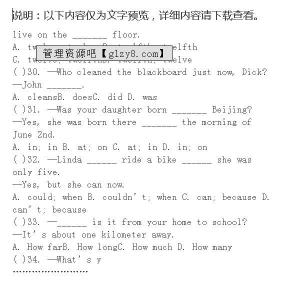
M: Sure. Here you are.
15. M: What’s in the box, Kangkang?
W: Some model planes.
Ⅳ. 听短文,选择正确答案。短文读两遍。
(M: ) Tom is a little boy. He is eight. Last Sunday his mother took him to visit his uncle. His uncle’s home is far from their home. So they went there by bus. There were only twenty people on the bus. They sat on the bus. Tom was very happy. He ran on the bus. His mother said, “Tom, don’t run! Sit down. ” But Tom said,“I want to see my uncle very much, so I want the bus to go fast. ”
仁爱版英语七年级下册期末试卷参考答案
第一部分 听力
Ⅰ. 1. A 2. C 3. B 4. B 5. C
Ⅱ. 6. A 7. B 8. A 9. C 10. B
Ⅲ. 11. C 12. A 13. B 14. C 15. A
Ⅳ. 16. A 17. C 18. A 19. B 20. A
第二部分 英语知识运用
Ⅰ.1. D 根据前一句“现在4点了”可知应该使用现在进行时,其结构为is/am/are + V-ing。故选D。
2. B 乐器前加the, 球类前通常不用冠词,故选B。
3. B 根据答语可知询问日期。选项A询问时间,C询问星期,D询问生日,故选B。
4. A 根据后半句可知她汉语懂得不多,因此Maria很少说汉语,故选A。
5. C 基数词表示数目;序数词表示顺序,故选C。
6. D 节日祝福的答语通常是The same to you.“你也一样”,故选D。
7. B in front of“在……前面(外部)”,A、C、D三个选项都是指在一个整体中的某一部分,故选B。
8. A 祈使句以动词原形开头,根据题意可知B不符合,故选A。
9. A 一般疑问句简略回答应该和引导词保持一致,故选A。
10. D enjoy doing sth. 可排除B、C; 再根据listen to后才可接宾语,排除A,故选D。
11. B plan to do sth.“计划做某事”,故选B。
12. C 由动词bought可知时态是一般过去时,疑问句用助动词did,动词用原形,故选C。
13. C 根据答语“一个月两次”可知询问频率,故选C。
14. B 考查there be句型的用法。动词be要与后面邻近的名词保持一致,即就近原则。故选B。
15. D 本句的回答应是一句对旅行的祝福语,故选D。
Ⅱ.(A)16. D 17. E 18. A 19. B 20. C
(B)21. F 22. C 23. G 24. B 25. E
Ⅲ. 26. B 根据下句And I give my father a present on Father’s Day, too.在父亲节给父亲买礼物,可知上句应该是在母亲节给母亲买礼物,故选B。
27. D 本句是一个祈使句,“总要记住去关心你的父母”。故选D。
28. A 根据上句Always remember to think of your parents.可知,“总要记住去关心你的父母,不仅仅在一些特殊日子”。故选A。
29. B 主语是she,本句话是一般现在时,动词用第三人称单数形式,故选B。
30. C 根据上下文可知,作者的朋友打电话不止一次,put the phone down “放下电话”,故选C。
31. B 根据上下文可知,她打了两次电话,故选B。
32. C 她的父母老了,不能很快地走近电话, close to“靠近”,故选C。
33. B 本句的意思是让父母有时间接电话,time在这里是不可数名词,用a little修饰,故选B。
34. A think of与think about都有 “关心” 之意,故选A。
35. B 根据上下文可知,“她总是关心父母,因此为什么不向她学习呢?”learn from sb. “向某人学习”,故选B。
Ⅳ. (A)
36. B 根据第一段第一句Wang Xiaojun is 12 years old. 可知他十二岁,今年2013年,那么他的出生年份就是2001年,故选B。
37. C 根据第一段第四句 …I won’t have the dinner… going to Shenzhen tomorrow.可知他不想要生日晚餐的原因是他的父母明天要去深圳了。
38. B 根据第二段第一句Wang Xiaojun has the birthday with his parents for the first time in the past three years.可知这是三年来Wang Xiaojun第一次和父母过生日。过去三年当然没有和父母一起过生日,故选B。
39. C stay-at-home child“留守儿童”,故选C。
40. D 留守儿童有很多问题,故选D。
(B)
41. A 根据短文第三句He wants to pick up his sister.可知他想去他姐姐的工厂,故选A。
42. C 根据短文第五、六句He stops in front of a bank… near his car.可知他向一位老人求救,故选C。
43. B 根据短文倒数第六句The factory is behind the bank.可知工厂在银行后面,故选B。
44. D 根据上下文可知老人最后告诉了Mike去工厂的路,故选D。
45. B 根据全文可知有三人,即迈克、迈克的妹妹和老人。故选B。
(C)
46. F
47. T
48. when he was
49. 为什么不在每一个十字路口放三盏灯呢?
50. C 全文讲述了红绿灯产生的过程,故选C。
第三部分 写作
Ⅰ.(A)51. November 52. neighbor 53. everything 54. thousand 55. caught
(B)56. brought 57. Japan 58. shorts 59. himself 60. once
Ⅱ. 61. important 62. dances 63. show 64. play 65. celebrate
Ⅲ. 参考范文:
(A)
66. Wang Fang is washing her face now.
67. Sometimes people/People sometimes use the computer to see movies.
68. Mary likes spring best.
69. We had a wonderful party last Sunday.
70. There are many books on the shelf.
(B)
A Happy Day
My uncle lives in the country. Last fall, there was an apple harvest on his farm. He asked my family to enjoy the apples.
On a sunny morning, my family drove to the farm. After we got there, I ate a big and red apple at once. The apple was so sweet. Then we helped harvest apples. In the afternoon, we had a big meal there. I thought it was delicious.
I was very happy on that day!
 爱华网
爱华网